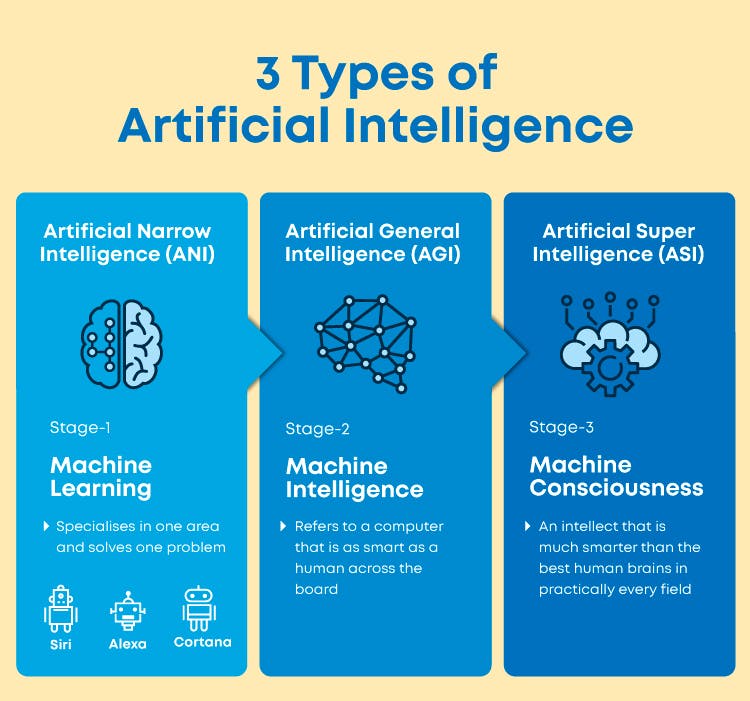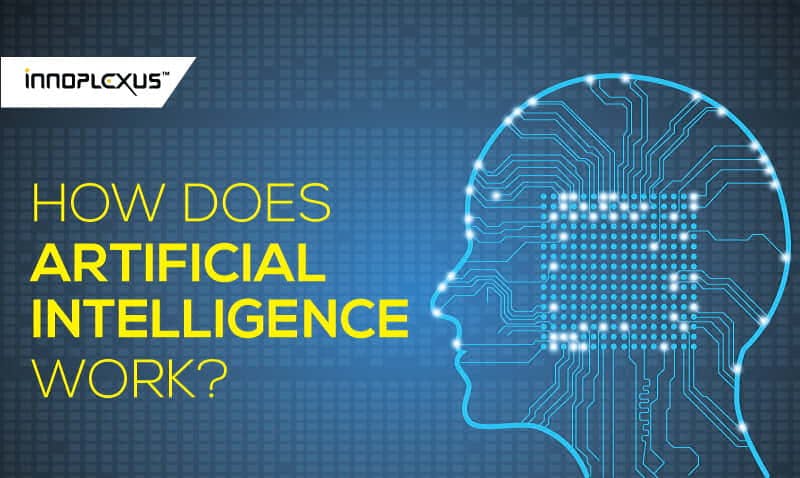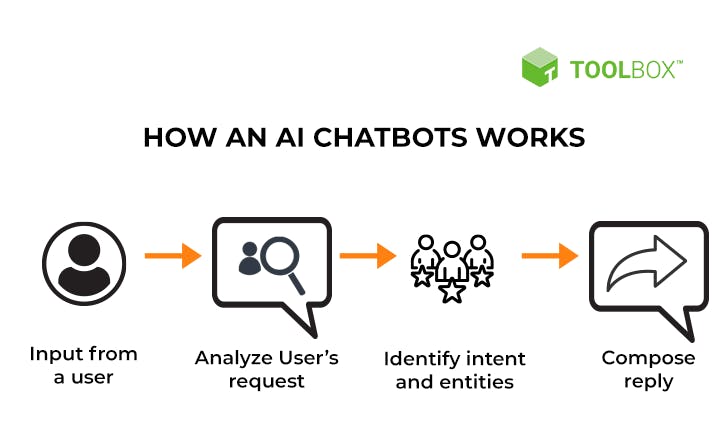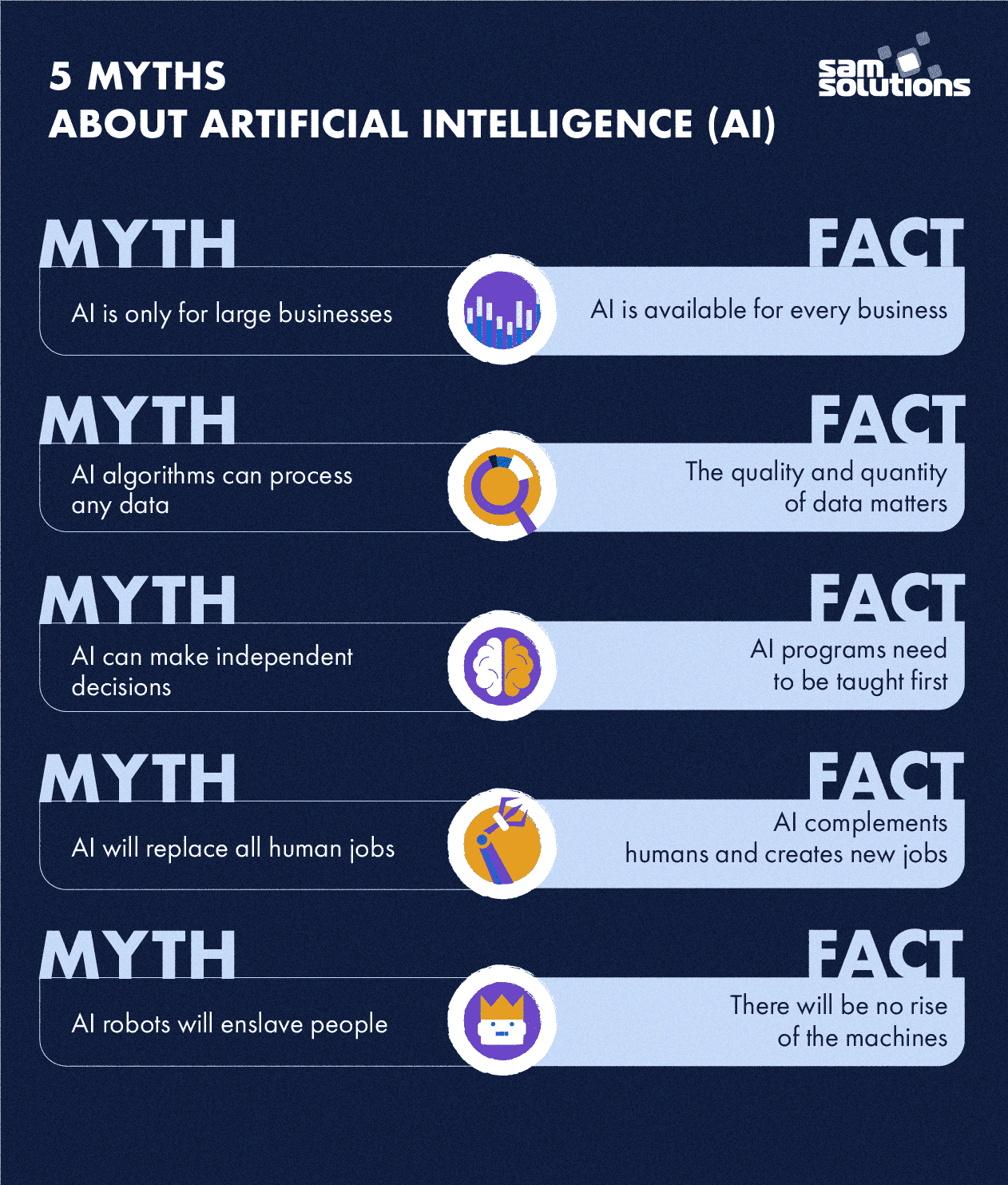Artificial Intelligence (AI) - A Threat Or Blessing?
A Short INTRO, USES And Misconceptions In The Society About AI.
Hey everyone!
Welcome to my first blog! I thought I should write something interesting from which people can be aware of the advantages and misconceptions about AI and not only that, they can be acknowledged with some of the great and interesting facts about AI as well. Firstly we will start with introduction of what is AI.
INTRODUCTION:
When someone uses the term “Artificial Intelligence,” the image evoked in most people’s minds is more like The Terminator than a real-world computer program. Our culture has heavily fictionalized artificial intelligence (AI), to the point that most people don’t consider it a reality. However, Artificial Intelligence may not be too far out of reach.
Popular misconceptions tend to place AI on an island with robots and self-driving cars. However, this approach fails to recognize artificial intelligence’s major practical application; processing the vast amounts of data generated daily. By strategically applying AI to certain processes, insight gathering and task automation occur at an otherwise unimaginable rate and scale. Parsing through the mountains of data created by humans.
WHAT IS AI?
In the simplest terms, AI which stands for artificial intelligence refers to systems or machines that mimic human intelligence to perform tasks and can iteratively improve themselves based on the information they collect. Basically it is the ability of a computer or a robot controlled by a computer to do tasks that are usually done by humans because they require human intelligence and discernment.
- An Intelligent Entity Created By humans
- Capable of Performing Tasks intelligently without being explicitly instructed.
- Capable of thinking and acting rationally and humanely.
WHAT ARE THE TYPES OF AI?
Different Artificial Intelligence entities are built for different purposes, and that’s how they vary. AI can be classified based on Type 1 and Type 2 (Based on functionalities). Following are the 3 types of Artificial Intelligence:
Artificial Narrow Intelligence (ANI)
Artificial General Intelligence (AGI)
Artificial Super Intelligence (ASI)

WHAT ARE THE BASIC COMPONENTS OF AI?
Many of AI’s revolutionary technologies are common buzzwords, like natural language processing, deep learning, cognitive computing and predictive analytics. Cutting-edge technologies that enable computer systems to understand the meaning of human language, learn from experience, and make predictions, respectively.
Understanding AI jargon is the key to facilitating discussion about the real-world applications of this technology. The technologies are disruptive, revolutionizing the way humans interact with data and make decisions, and should be understood in basic terms by all of us.
HOW DOES AI WORKS?
 AI uses algorithms and techniques such as machine learning and deep learning to learn, evolve, and get progressively better at assigned tasks. AI is categorized into three types based on the human characteristics it can replicate, its real-world applications, and the theory of mind prerequisites:
AI uses algorithms and techniques such as machine learning and deep learning to learn, evolve, and get progressively better at assigned tasks. AI is categorized into three types based on the human characteristics it can replicate, its real-world applications, and the theory of mind prerequisites:
Artificial narrow intelligence (ANI): AI with a narrow range of abilities
Artificial general intelligence (AGI): AI on par with human capabilities
Artificial superintelligence (ASI): AI that surpasses human intelligence
WHAT IS AN EXAMPLE OF AI?
Artificial intelligence (AI) chatbots are a fascinating advancement in today’s digital technology landscape. They can do it all whether it’s helping you order a pizza, answering specific questions, or guiding you through a complex sales process. Artificial intelligence chatbots are chatbots trained to have human-like conversations using a process known as natural language processing (NLP).

At the base level, an AI chatbot is fed input data which it interprets and translates into a relevant output. So, if a site visitor asks a question, the AI chatbot will analyze their intent, as well as other factors like tone and sentiment, and then attempt to deliver the best possible answer.
ADVANTAGES OF ARTIFICIAL INTELIGENCE:
Some of the primary advantages of AI are as follows:
AI drives down the time taken to perform a task. It enables multi-tasking and eases the workload for existing resources.
AI facilitates decision-making by making the process faster and smarter.
AI operates 24x7 without interruption or breaks and has no downtime.
Searching within data, and optimizing the search to give the most relevant results.
Logic-chains for if-then reasoning, that can be applied to execute a string of commands based on parameters.
Pattern-detection to identify significant patterns in large data set for unique insights.
Applied probabilistic models for predicting future outcomes.
AI augments the capabilities of differently abled individuals.
AI systems perform intelligent searches, interpreting both text and images to discover patterns in complex data, and then act on those learnings.
AI has mass market potential, it can be deployed across industries.
WHERE IS AI USED IN DAILY LIFE?
AI is used in different domains to give insights into user behavior and give recommendations based on the data. For example, Google’s predictive search algorithm used past user data to predict what a user would type next in the search bar. Netflix uses past user data to recommend what movie a user might want to see next, making the user hooked onto the platform and increasing watch time. Facebook uses past data of the users to automatically give suggestions to tag your friends, based on the facial features in their images. AI is used everywhere by large organizations to make an end user’s life simpler.
INTERESTING FACTS ABOUT AI:
Based on research and surfing, I have found these facts:
Google CEO Sunder Pichai claimed that artificial intelligence (AI) would be more transformative to humanity as a species than electricity and fire.
A McKinsey survey from 2021 found that 56% of companies have adopted AI in at least one function within the organization, which is an increase from 50% the year prior.
Global corporate investment in AI rose from 67.85 billion in 2020 to 93.5 billion in 2021.
Global revenues from AI for enterprise applications are projected to grow from $1.62B in 2018 to $31.2B in 2025.
As reported by Gartner, by 2025, more than 75% of venture and seed capital investors will use AI and data analytics to gather information.
MISCONCEPTIONS ABOUT AI:
Super-intelligent machines will surpass humans.
Machines learn by themselves.
Most people don’t consider it a reality.
AI is the same thing as machine learning.
AI is not useful in every company.

Most Frequent Misconception:
Artificial Inelligence will kill jobs:
In the majority of cases, artificial intelligence will not eliminate your job. Instead it will help to reduce the amount of boring, repetitive tasks that you have to complete daily, therefore freeing up humans to spend more time on higher-level, more intellectually stimulating challenges.
As was the case with the automation and robotization of recent decades, it would be more accurate to say that AI technologies will replace some jobs and transform others. In other words, AI will profoundly change the nature of work, as was the case in previous industrial revolutions, but probably not reduce the overall number of jobs. AI makes it possible to eliminate repetitive intellectual tasks, freeing up the capacity to work in a new and more intelligent way.
And just like robotization, AI can be more efficient than any human for certain tasks. For example, an AI-based application for examining lung X-rays that can detect disease much faster and more reliably than radiologists.
ELON MUSK Threat To The World:
Elon Musk threatened AI has also gone famous. You can find it on every social platform.
Elon Musk says adopting AI is like “Summoning the Demon”. He believes that artificial intelligence can evoke the next world war and result in dominating the world and that robot leadership is a threat to the world.
CONCLUSION:
According to my research about Artificial Intelligence, Scientists have reasoned that AI will lead to innovations, discoveries, and scientific advancements. There are several advantages to AI as well as some disadvantages but humans should machine friendly in this technological world. Some people have misconceptions about AI but I think now they should accept the fact that Artificial Intelligence is all about human ease.

